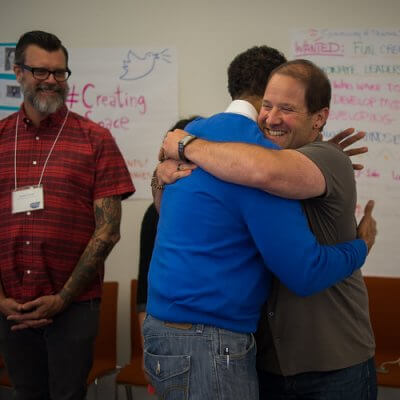Can You Be Selfish and Still Be a Good Person?

By: Holly Lay
By Andrea M. Darcy
Can you be selfish without being a terrible person? And why are we selfish anyway? It’s a question that has been heavily debated since the time of Aristotle.
But how does it apply to our modern lives, and what does psychology have to say?
The definition of selfish
The general definition of selfishness, according to the Cambridge dictionary, is:
- someone who only thinks of their own advantage
- caring only about what you want or need without any thoughts for the needs or wishes of other people.
With this approach, the opposite of selfishness would be selflessness. But it’s a set of extreme opposites, entirely self-centred vs god-like, that few humans live up to (despite the internet trying to convince us that everyone around us is a raging Machiavellian narcissist).
Psychology’s take on selfishness
In evolutionary psychology, even recent research still starts with the premise that as humans, we are are still coming from our primordial, ‘survive at all costs’ brain. We are self-centred, always looking out for ourselves over others, because then we get ahead.
And yet newer research in social psychology around compassion, empathy, and caring for others challenges this assumption.
A large-scale review on the research around social motivation put out by Ohio State University by Crocker, Canavello, and Brown challenges the long-held idea that we are selfish as we benefit from selfishness, instead showing that we can benefit and suffer from both thinking of ourselves or thinking of others, stating–
“A fight-or-flight motivational system that promotes looking out for oneself can save lives in some circumstances…. [yet] humans have evolved to live cooperatively in social groups in which people take care of each other.”

By: Eugene Kim
It’s perhaps best explained by the rise of the word ‘otherishness’ as an opposite for selfishness in psychology circles, made popular by researcher Adam Grant in his book Give and Take.
Selfishness becomes about focus and intent. Are you focused on the self, or on others? Are we intending to help ourselves, or to help others?
When thinking of others can backfire
We all know someone who is that long-suffering, refusing to think of themselves, ‘overgiver‘ type. Or we might even be one ourselves. If we are codependent, basing our sense of self on how much we give to others, we tend to fall into victim mentality. We feel sorry for ourselves, unable to see we are actually choosing to put ourselves last. We are usually even manipulating others in the process.
But sometimes life simply throws us into overgiving, as is the case with those who end up a caregiver when a family member falls ill. Research on caregiving show that when all our time is taken up by caring for others instead of ourselves, it can negatively affect our health and wellbeing, including making us more vulnerable to depression.
Even if we are not codependent or a caregiver, giving can backfire if are doing it with the wrong intent. If we are giving to look good, or to benefit in the future from someone returning the favour? Then we are unlikely to attract the benefits of giving the research by Crocker, Canavello and Brown details, such as better relationships and moods, feeling connected to others, and better physical health.
When selfishness can be a positive
So in the above cases, some self interest could indeed be a positive. It becomes a question of self care. If we are giving to the extent we are decimating our own mental and physical wellbeing, then it’s time to put ourselves first for a bit.

By: yarenlen
Of course is this really selfishness? Or is it simply setting healthy boundaries? It’s often the latter.
I can’t tell when others are or aren’t being selfish
It’s a good difference to learn, both in the ways we use the word against others, and in the ways we apply it to ourselves.
We often confuse ‘selfishness’ with someone not doing what we want them to. “You didn’t do the dishes like I asked, you are so selfish”. In this way it’s a form of control. The other person might have simply forgotten, or been distracted.
Or we call someone selfish for having different personal values than us. “Quitting your job for a year for volunteering when you have a family is selfish”. Yet in their mind they are helping others.
And often it’s just a quick insult we use to shut someone down, even, unfortunately, our own children. “Stop taking your brother’s toy, it’s selfish!”. Meanwhile, our kid just liked the toy and was not thinking of the consequences.
It helps to consider intent. Selfishness is intentionally choosing self interest.
- Does the other person even realise they are putting themselves first?
- Is the person intending to hurt me or someone else?
- Are they actually doing something that will hurt me or someone else long term, or just being annoying?
Am I actually being selfish?
Are you being selfish, or just setting a good boundary? Apply the question of intent again:
- What is my intent to do this action?
- Will this action hurt me in the long run?
- Will this action hurt others in the long run?
For example, you want to say no to going to a friend’s anniversary party as you are feeling oddly exhausted from a long week at work. You feel guilty, but your intent is not to upset your friend, but to take care of your health. The action won’t hurt you in the long run. And it might upset your friend, but not hurt her. So it is a a difficult decision, as there might be some fallout, depending on your friend’s personality. But in the long run it is not a selfish one.
In summary
The large-scale research review by Ohio State actually concluded that selfishness had no yet proven benefits beyond possible quick gains like money and time. “In terms of psychological wellbeing, physical health, and relationships, we have been unable to locate empirical evidence of the benefits of selfish motivation.”
But if you have led your life confusing selfishness with boundaries and self-care, then perhaps it’s time to be a little bit selfish. And you won’t suddenly become that internet-famous narcissist after all.
Can’t stop always being angry and seeing everyone else as selfish? Or seeing yourself as useless and selfish? It’s time to talk. We connect you with top London therapists in central London. Or use our booking site to find UK-wide therapists and worldwide video counselling you can trust.
Still have a question about if you can be selfish and good? Or want to share your experience and tips with readers? Post below. Note we do not allow advertisements or inflammatory content.
 Andrea M Darcy is a health writer and the editor of this site. She loves a good personal boundary. Find her on Instagram @am_darcy
Andrea M Darcy is a health writer and the editor of this site. She loves a good personal boundary. Find her on Instagram @am_darcy




